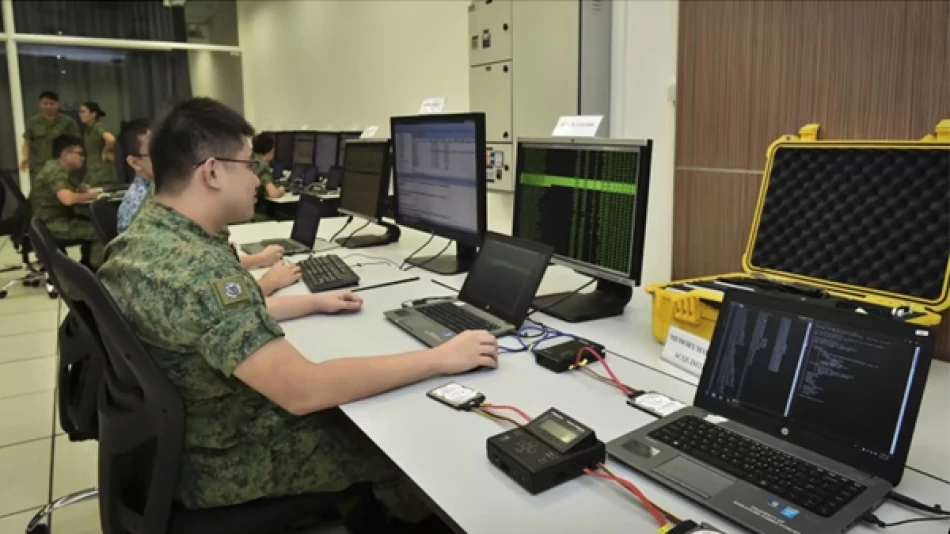
Singapore Mobilizes Military to Combat Massive Cyber Attack
Singapore Deploys Military Units to Counter "Serious" State-Level Cyber Attack on Critical Infrastructure
Singapore has escalated its cybersecurity response by deploying elite military units to help counter what officials describe as a sophisticated, ongoing cyber attack targeting the city-state's critical infrastructure. The move signals how nation-state cyber warfare has evolved beyond traditional defense mechanisms, forcing governments to treat digital threats with the same urgency as physical military operations.
Military-Cyber Integration Marks New Defense Strategy
Defense Minister Chan Chun Sing announced Saturday that specialized military units would collaborate directly with Singapore's Cyber Security Agency to address the threat. This represents a significant shift in how the wealthy trading hub approaches cybersecurity—moving from purely civilian oversight to integrated military-cyber operations.
The defense minister characterized the attack as an example of "new threats" that now fall under military jurisdiction, effectively blurring the lines between traditional warfare and cyber operations. This approach mirrors strategies adopted by Israel and South Korea, where cyber commands operate as integral parts of national defense.
Advanced Persistent Threats Target National Backbone
Home Affairs Minister K. Shanmugam revealed Friday evening that the attack constitutes an "Advanced Persistent Threat" (APT)—a category of sophisticated, resource-intensive cyber operations typically associated with nation-state actors. These attacks are designed for long-term infiltration rather than quick disruption, making them particularly dangerous for small, highly connected economies like Singapore.
The targeted infrastructure includes healthcare systems, telecommunications networks, water supply, transportation, and electrical grids. A successful breach of Singapore's power grid alone could cascade into widespread service disruptions across the island nation, potentially affecting its status as a regional financial and logistics hub.
Four-Fold Increase in Sophisticated Threats
Shanmugam disclosed that advanced cyber threats against Singapore have quadrupled between 2021 and 2024, reflecting broader global trends in state-sponsored cyber warfare. This dramatic increase coincides with heightened geopolitical tensions and Singapore's growing importance as a neutral financial center amid US-China competition.
Strategic Implications for Regional Cybersecurity
Singapore's military deployment against cyber threats sets a precedent for Southeast Asian nations, most of which lack comparable cyber defense capabilities. The city-state's response demonstrates how smaller nations must adapt asymmetric defense strategies when facing well-resourced adversaries in cyberspace.
The incident also highlights Singapore's vulnerability despite its advanced digital infrastructure. As one of the world's most connected economies, the nation presents an attractive target for actors seeking to disrupt regional trade flows or test cyber warfare capabilities against Western-aligned democracies.
Market and Economic Considerations
Singapore's role as a critical node in global supply chains and financial networks means successful cyber attacks could have far-reaching economic consequences. The government's aggressive response likely aims to reassure international businesses and investors that critical infrastructure remains secure.
The integration of military resources into cyber defense also signals Singapore's long-term commitment to maintaining its competitive advantage as a stable, secure base for multinational operations in Asia. This approach may influence other regional governments to reconsider their own cyber defense strategies and military-civilian coordination mechanisms.
Most Viewed News

 Layla Al Mansoori
Layla Al Mansoori






